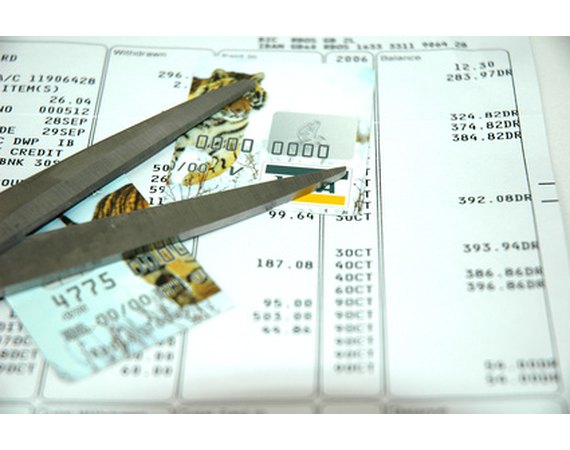
Knowing your FICO score is essential to staying on top of your financial status, especially if you need to obtain credit. Lenders use your FICO score to decide whether you're worth the financial risk. In fact, 90 percent of banks use this score to determine whether you are eligible for credit, according to the Fair Isaac Corp. The lower your score, the less likely you will be able to obtain good rates -- or secure credit at all.
Requirements for Scores
Your FICO score is based on your credit history, so having one is necessary to determine the score. Scores can only be computed if you have at least one credit account that has been open for a minimum of six months and has been reported to a credit bureau within the past six months. While your score is only computed if you are alive, sharing a credit account with another person who dies remains part of your history and is still factored into your score.
FICO Components
The FICO score consists of five components: the amount you owe to lenders, your payment history, the length of your credit history, new credit accounts and the type of accounts in your history. Your payment history and the amount you owe are typically the top factors in determining your score. However, what components are most important in your specific credit history may vary, according to the Fair Isaac Corp. Making late payments, having a high debt-to-credit ratio or filing bankruptcy are just a few examples of factors that negatively impact your FICO.
Factors Not in Your FICO Score
Determining your FICO score requires an extensive amount of personal information, but there are several factors that are not involved in its computation. These include demographic factors such as your age, gender, race or ethnicity. Your salary and where you live are also excluded. Other information not considered include child support requirements, rental agreements and interest rates on current accounts. Some aspects of your financial history not included in your FICO, however, may still be used by some lenders, such as your work history.
Changing Your Score
Your FICO score is not easily changed, especially if you have an extensive credit history. Small actions may not affect your score as much as someone who is just starting their history. Keep in mind, however, that the kind of events or actions taken play more of a role in how much your FICO is affected. Having a delinquent account, for example, can have a major negative impact on your score. It will take time, but working with your creditors and resuming regular payments will help your score improve.







0 comments:
Post a Comment